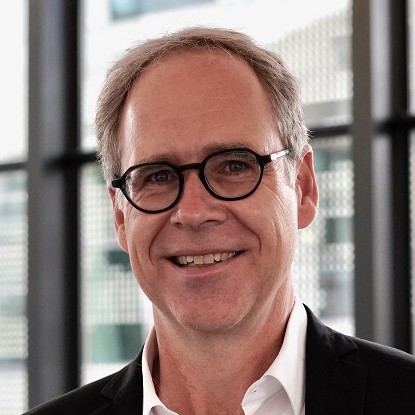Dr. Navneet Kumar Gupta
My field of research is fascinating. The best way to explain it to non-specialists in a comprehensible manner is:
The negative impact of a fossil fuels-based society on the environment has led to a general consciousness about the necessity of a shift towards a more sustainable bio-based production of energy, chemicals and polymers. The synthesis of bio-based chemicals in Europe is not new, with a current annual production around 40 million tons. The EU has declared the bio-based products sector to be a priority area with high potential for future growth, re-industrialization and addressing societal challenges Moreover, there is a strong consumer-based drive for biobased products.
Germany is ideally suited to play a leading role in the shift to bio-based production. First of all, there is a long tradition of biomass refinery to food ingredients (sugars, organic acids, alcoholic beverages). Besides, Germany has a high level of education in chemical, engineering and agricultural technology leading to a strong expertise in collection, sorting and processing of biomass (waste) towards high value products as well as its utilization as renewable feedstock for the chemical industry.
What research questions are you currently working on?
Among the several suggestions of how to overcome the lack of unlimited fossil energy carriers, plant biomass based compounds gained significant interest during the last decade. Bio-based compounds are not only to substitute – at least in part – oil and gasoline for combustion engines, but also and equally important to be used as feedstock for chemical industries. Therefore, we are currently working on suitable catalyst materials and processes to produce amines from biobased platform molecules, viz. diols, as renewable drop-in solution e.g. for polymers or solvents production.
My most important success in research to date is…
Understanding the mechanism of complex phosgene formation over carbon catalyst, particularly what are the active sites on the carbon catalyst surface and what is the nature of the transient intermediates. And I would like to add the development of noble catalytic materials for efficient biomass conversion.
Will the results of your research have a concrete impact on our everyday lives either now or at some later date?
Yes, my PhD work on phosgene synthesis was industrial collaborated project with Bayer Technology Services GmbH and knowledge gained was successfully applied for the higher scale production. The developed process was incorporated with the other chemical processes for the production of diphenyl carbonate (a monomer for polycarbonate production).
My postdoctoral work and current research interest lies on efficient biomass utilization. Since biomass has emerged as a viable alternative feedstock for the variety of commodity chemicals or liquid fuels, I strongly believe that future energy will be based on biomass resources.
I became a researcher because …
Curiosity, critical thought and new learning inspired me to become a researcher.
I’ve chosen the TU Darmstadt because of …
TU Darmstadt is a hallowed research institute in Europe, having contributed to innumerable developments in modern science. TU has always been a source of state-of-the-art research which is reflected by several high impact scientific contributions. The broad research interest of the scientists as well as the world class facilities available at TU provides an environment for addressing non-trivial scientific problems. TU Darmstadt has also set up interdisciplinary integrative research centers in the field of catalysis which involve experts from various academic departments and from industry. I strongly believe that these infrastructures and expertise at TU Darmstadt will help me to achieve my research objectives.
Questionnaire for the host
Guest of: Prof. Dr. Marcus Rose
Department: Chemistry
What would you say you appreciate most about your guest or what made the most favourable impression on you…
Dr. Gupta is an excellent researcher. He gained experience in the field of catalysis and biomass conversion in prestigious universities and world leading research groups. He obtained his Ph.D. from TU Munich under supervision of Professor Johannes Lercher where he carried out research on the development of novel carbon-based catalyst and applied advanced characterization techniques. As a postdoc he gained additional expertise on the development of heterogeneous catalysts for sustainable biomass conversion at Hokkaido University, Japan, and KU Leuven, Belgium. His multidisciplinary research experience is impressive and now we want to combine his expertise on catalyst development with our activities on catalytic process development for the production of biobased amines for the chemical and polymer industry.
You, your team and the TU Darmstadt benefit from your guest’s…
…research expertise in the field of catalysis, which is intrinsically quite multidisciplinary at the interface of chemistry, materials science, chemical engineering and more. Navneet Gupta is a passionate and experienced researcher with expertise he gained from world’s top universities and catalysis research groups. All these different research environments provided him an invaluable experience and also an excellent network in the field of heterogeneous catalysis and biomass conversion, which he will use and further develop during his stay in my group. And this is definitely something the group and TU Darmstadt will benefit from as new collaborations and future projects can be based in such a fruitful collaboration.







